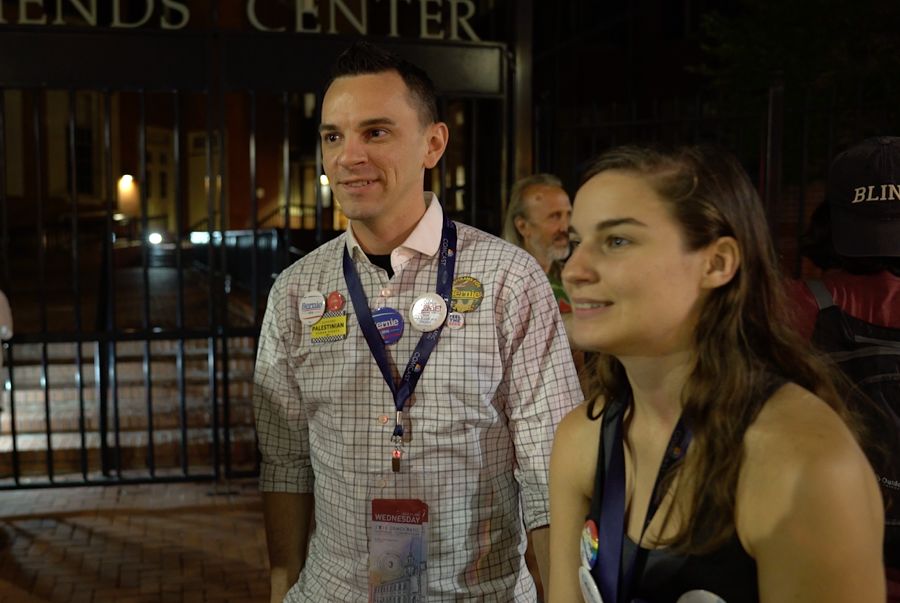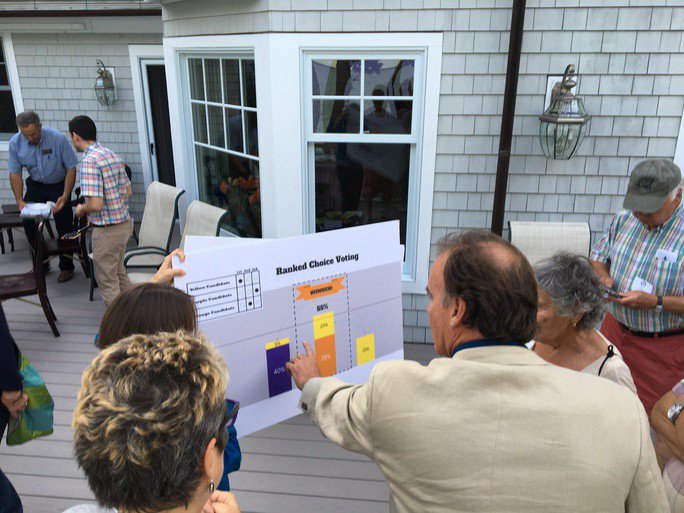The 3 Pillars of Election Reform: Why Now Is The Time To Get Involved

We all know by now the 2016 election has been historic for many reasons. Revolutions called for, walls promised, and glass ceilings shattered. Now we are eyeing a possibility that third parties get 10% or beyond of the popular vote (most experts will take the under, I’ll be saucy and take the over).
There still seems to be some lingering stench of disappointment in the process that brought us two historically disliked candidates. For anyone hoping for some changes here, I have a humble recommendation that I’ve personally only recently taken to heart. You can’t change what you can’t articulate. Saying you want to change the ‘system’ won’t get you very far. Instead, define that change. Think structurally and organize around an issue. Then put feet on the ground, meet, write, propose, educate, get signatures, and win votes for issues. If there’s one thing that’s stood out while making Third Candidates, it’s that this is how grassroots politics is done. You hit the pavement and meet face to face with friends and foes.
Three Pillars
Here’s a mental model I learned from Doug Clopp, National Outreach Director at FairVote.org, for how you can mentally organize reform in the political system. There are three main pillars:
1. Money Reform. We all know this story. Citizens United. Super PACs. Lobbyists. Crony Capitalism. Anything the FEC is supposed to oversee. This, far and away, gets the most coverage any given day.
2. Voter Access Reform. Discriminatory ID laws. Making elections a holiday. Same day voter registration. Lowering the voting age. Basically anything that can suppress or increase turnout.
3. Electoral Reform. The structure itself, and the least talked about of all of them. Ballot access laws for third parties. The Electoral College. Gerrymandering. Alternative voting methods.
Now you might be left with a paradox of choice. Which one of these should I get involved in? I can’t do all of them! Where do I start? Well, inside the magnitude of the effort actually lies the good news.
Bernie Sanders Delegates at the DNCComfort in Uncertainty
Political and social systems are massively complex. Not complicated. Complex. There’s a key difference. A complicated system, like a car, may have thousands of moving parts, but it is built and arranged in a way where you know how each part will work with another part. It’s predictable.
A complex system is a collection of connected events, entities, and organizations that just sorta ‘happen.’ They aren’t built. They are created over time. Our environment is a complex system. Our politics is a complex system — constitutions, individual politicians, political parties, interest groups, citizens, law enforcement agencies all bump up against each other and against outside factors like economic changes, geopolitics, and natural disasters. The United States ticks up the complexity a notch when you add in our cultural diversity, government levels, and checks and balances.
In a complex system, you can’t always predict change A will lead to result B. Unpredictability is part of the reality. What you can do is set boundaries, experiment, observe, and repeat. Set boundaries, poke the system, observe what happens, and adjust.
So what the hell about this is the good news, and how the hell does that actually help the paradox of choice?
It just means that you simply can’t change the world on your own, but if you focus on any area that you care about, start experimenting, and pay close attention to the results, the outcomes may be something you couldn’t have predicted. Either as a direct result from your experiment, or how it impacted another part of the system. Embrace that uncertainty and don’t over optimize. Embrace that multiple paths are possible, but that you may need to chose one, and, with a healthy dose of skepticism and optimism, just get going. This whole country was founded as an experiment.
If You Don’t, No One Will Listen
Participation is also important for hard, cold reasons. The biggest reason is it keeps your voice in the equation and forces the changes you support over time. You don’t think representatives pay attention to who’s voting? It goes beyond voting. You think elected representatives are going to lead the charge for electoral reform?
Take the Ranked Choice Voting effort going on in Maine right now. For years, it languished in the state legislature. It wasn't until 2014 when the Committee for Ranked Choice Voting was organized that the effort got true forward momentum. Tens of thousands of signatures were gathered and now, through the citizen initiative, it will be included on the ballot this November for the voters of Maine as "Question 5."
House Party Education Event for Ranked Choice Voting in MaineThere will always and forever be a class and industry of people who are attached to power and influence. As a group, it’s important to keep them on their toes and honest if they’re choosing a career path attached to governance. I like to use the analogy of currency printers and counterfeiters. New technologies and designs can make it both easier and harder to counterfeit, so it’s a constant back and forth. New governing tools and structures can and will cause others to adjust, but there’s no silver bullet.
The boomers are on the tail end of their political dominance. The majority belongs to a new collection of individuals, and it’s up to them to stay one step ahead of the corrupt and the complacent. Act on it. Write. Call. Organize. Meet. Talk. Walk. Now and beyond 2016.
Editor's note: Jake is currently producing a project called Third Candidates, documenting his experience and takeaways from the 2016 election, including major political reform efforts nationwide. To find out more about the project or how you can help, click here.






